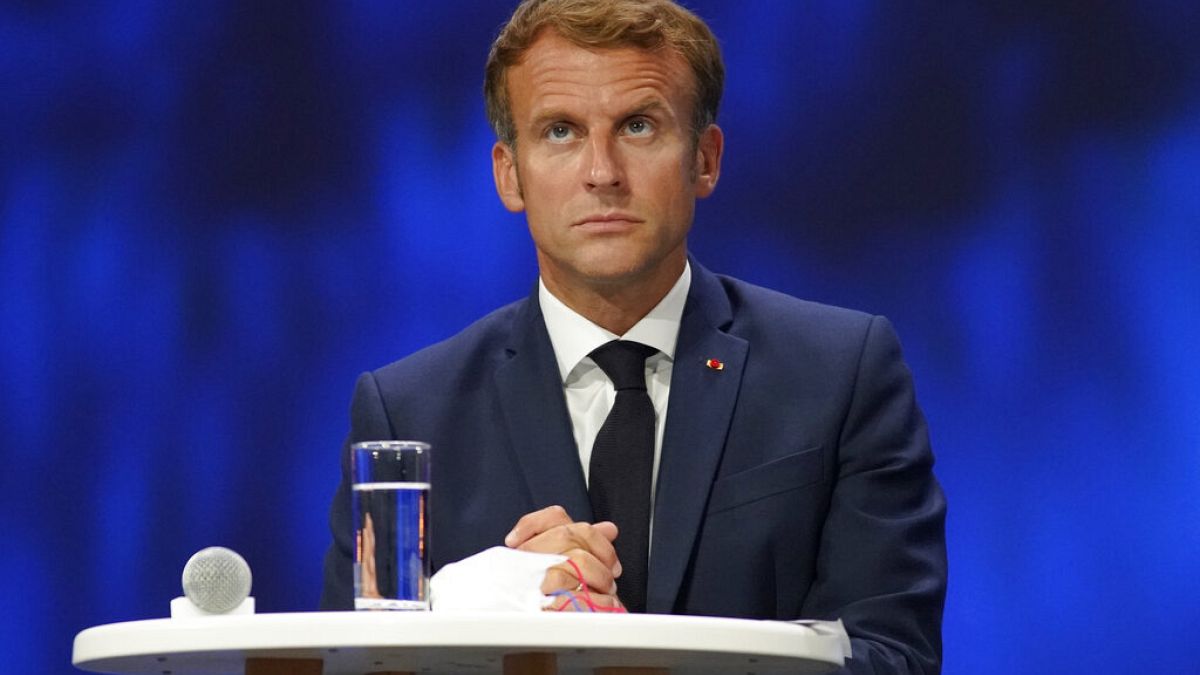Warsaw was involved in multiple disputes this week, as the list of differences between Poland and the EU grow.
When the European Union pulls out its financial cudgel, people listen.
A region in southern Poland this week revoked an anti-LGBT resolution under the threat of losing EU funding. The region, like dozens of Polish municipalities, had declared itself an LGBT-free zone.
EU leaders severely denounced the resolutions and Brussels suspended negotiations over payment of funds from a recovery programme.
No respect for European values, no money – it's as simple as that.
Poland was also ordered by the European Court of Justice (ECJ) on Monday to pay Brussels €500,000-a-day over its failure to close a coal mine on the Polish-Czech border.
The Turow open-cast lignite mine has been the subject of dispute between Warsaw and Prague, with the latter complaining it is damaging communities over the border.
In March, Prague filed an injunction saying the mine drains groundwater away from surrounding areas. Two months later, the ECJ told Warsaw to stop extracting brown coal.
In yet another dispute between Brussels and Warsaw, the Polish Constitutional Court this week once again adjourned proceedings in a case to decide which has primacy: Polish law or EU law. The chairwoman said the Court, which opponents say has been stacked by loyalists to the ruling conservative Law and Justice (PiS) party, needs more time to look into it.
Some have interpreted that as a good sign in favour of the rule of law.
European funds are at stake here as well.
AUKUS ruckus
The Australian government's decision to pull out of a massive diesel-powered submarine contract with France, and to enter into an agreement to acquire nuclear-powered submarines with the United States and Britain as part of a new security pact between the three countries has triggered a serious crisis of confidence between historic allies.
For the French, it was the unceremonious end of what they had dubbed "the contract of the century".
The Europeans were also disappointed, after having hoped that the Trump-era of bad surprises was over.
This week, the annual UN General Assembly offered in-person opportunities to mend fences.
The EU's foreign policy chief Josep Borrell held talks with US secretary of state Anthony Blinken and said: "I am sure we are going to talk about recent issues where we can build stronger confidence among us following the [phone] conversation that I think took place this morning between President Biden and President Macron. I'm sure we'll be working together."
But former EU ambassador to the US David O'Sullivan says that the long-term fallout from the spat will continue.
"I think the immediate crisis is over. Hopefully, this phone call has managed to reconcile the two parties. The French ambassador will return to Washington, which I think is a good thing...But on the other hand, I think the implications and the ramifications of this crisis will continue to have an impact in the coming months," O'Sullivan told Euronews.
"I think the lesson for Europe is the lesson we've been learning for some time, which is that the United States is our closest ally. NATO is crucial, but the United States is changing. Their preoccupation is increasingly the Indo-Pacific. It is Asia, it is China. And also, they're becoming slightly more transactional, even under President Biden. And we have to recognise that in Europe," he added.
"That puts a huge responsibility on us to take a bigger responsibility for our own security and defense than might otherwise have been the case, which is not to put into question NATO or the transatlantic alliance, but to say that we have to do more."
One charger to rule them all
Brussels also outlined a set of proposals to establish one common charging solution for devices like phones, tablets, headphones and other electronics.
"European consumers were frustrated long enough about incompatible chargers piling up in their drawers," said Margrethe Vestager, Executive Vice-President of the European Commission.
Brussels believes tech manufacturers should have done this already themselves.
"We gave industry plenty of time to come up with their own solutions," said Vestgager. "Now, the time is ripe for legislative action for a common charger."
The plan is that the already widely used USB-C charger and port will become the standard for all new devices being sold in the EU.
Aside from ease of use, the Commission wants to reduce the amount of so-called e-waste.
On top of forcing tech companies to only sell devices with the USB-C port, they will also forbid them from including a charger in the sale, meaning consumers will be able to use chargers they already own.
EU figures suggest 420 million phones and devices which would come under this directive were sold in 2020.
They also believe consumers spend approximately €2.4 billion annually on standalone chargers that do not come with electronic devices.
